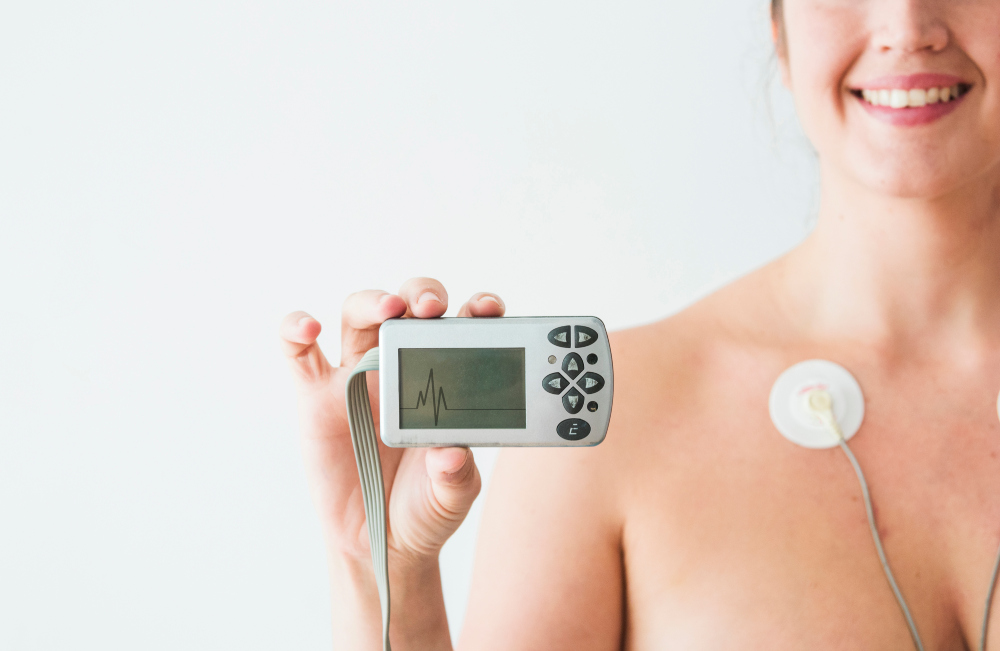“An entertaining night of heart-stopping shocks!” read the headline in The Irish Times.
While the review of a recent stage play may seem overdramatic, it’s in keeping with how we communicate certain emotions through anatomical metaphor:
Heart-stopping, heartbreaking, heartrending—it’s interesting how we often turn to our hearts when we want to tell people about a moment of high stress, emotion, or anxiety.
Perhaps that’s because we all know what extreme stress feels like. The chest thumps as we make a speech. The pulse races when someone shouts in the street. Our heart “skips a beat” when we see something unexpected.
The question is…are anxious moments just temporary blips? Or could they trigger something more serious in the heart – even a rhythm problem like atrial fibrillation (AFib) (the most common arrhythmia)?
How does stress affect the heart?
Stress activates the body’s autonomic nervous system (ANS), a nerve network responsible for regulating bodily functions like breathing, sweating and heart rate. A “fight or flight” situation triggers a surge of adrenaline, which prompts the heart to contract more quickly and powerfully than usual. Sometimes, this can lead to what doctors call a palpitation.
What does a stress palpitation feel like?
It can vary from person to person. Some typical symptoms include:
- Pounding – a feeling that your heart is thumping very forcefully
- Racing – the sense that your heart is beating much more quickly than normal
- Fluttering – a feeling that your heart is “flapping” or becoming fluttery
- Skipping – a sense that your heart suddenly misses a beat
These feelings may not just come from the chest. Some people experience palpitation in their neck or throat; sometimes it can even feel like a pounding in the ears.
Is a stress palpitation dangerous?
Most palpitations aren’t dangerous. We all get them from time to time, and not just because of stress or anxiety. Intensive exercise, too much caffeine, even rich food can trigger a palpitation. Often, there’s no apparent reason, and the symptoms soon disappear. With that said, palpitation symptoms can sometimes be a signal of an underlying problem in the heart.
How can you tell if a palpitation is more serious?
One of the first things a cardiologist will want to know is: are you getting any other symptoms with the palpitations? Potential red flags include chest pains, breathlessness, or feeling dizzy; if you get them, you should seek medical help immediately. Also, have the palpitation symptoms changed recently? And do you have a history of heart issues? The consultant may then want to do some diagnostic tests, such as an electrocardiogram (ECG) or a heart monitor test. These will show if your heart is beating too quickly, too slowly, or erratically – an arrhythmia – and whether you need further treatment.
So, can stress cause an arrhythmia?
In truth, we don’t know. Some research has implied a link. One 2018 study, for example, suggested a stressful job might be associated with a higher risk of AFib (see: Stress at work may stress your heart, Irish Heart Foundation). However, other research has failed to find any connection at all. Certainly, anxiety can heighten our awareness of a faster, stronger or palpitating heartbeat. But there isn’t enough evidence to say it can generate an irregular rhythm. More research is needed.
What can we conclude from this?
When it comes to stress and palpitations, there’s a balance to strike between being vigilant and worrying unnecessarily. Most stress-related palpitations are harmless and temporary. But they can sometimes signal a problem. Equally, some rhythm conditions – such as AFib – won’t necessarily cause any symptoms at all. So, it’s important not to make broad-based assumptions. Investigating the heart’s rhythm, and correlating it with any symptoms, is the best way to determine the next steps.
Are you concerned about palpitations, or your heart health? Book an appointment with Dr Lyne, call our team, or send us an email.
For further reading:
Why we should all be checking our pulses (and how to do it properly) (blog)
Stress – tips and self-help from the Health Service Executive (HSE)
Is stress good, bad or both? Irish Heart Foundation article






